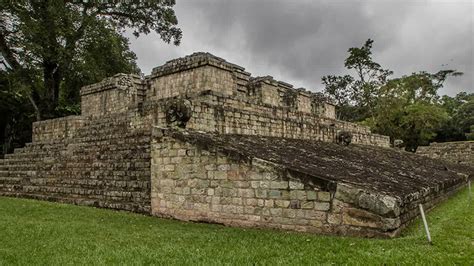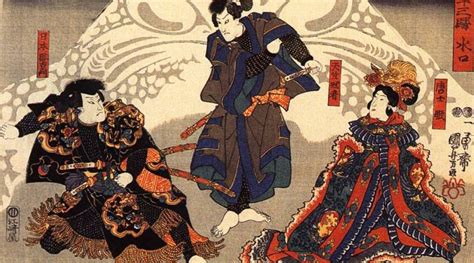Explore the cultural, colonial, and independence history, along with modern challenges and achievements of this region’s political and social development.
Early Cultural Practices
Contents
Papua New Guinea has a rich and diverse history of early cultural practices that have shaped the identity of its people. The inhabitants of this island nation have a long history of traditional customs, rituals, and belief systems that have been passed down through generations.
These early cultural practices were deeply rooted in the indigenous tribes and communities, each with their own unique traditions and way of life. From elaborate ceremonies to intricate art forms, the early inhabitants of Papua New Guinea had a complex and vibrant culture that was deeply intertwined with their natural surroundings.
The practices of storytelling, dance, and music played a central role in preserving and passing on the rich heritage of the different tribes. These cultural expressions were not just forms of entertainment, but served as a means of educating the younger generations about their history, values, and beliefs.
The early cultural practices of Papua New Guinea were also closely tied to their relationship with the land and sea. Many tribes had a deep spiritual connection to the natural world, which was reflected in their rituals and ceremonies. The land itself was revered as a source of life and sustenance, and this reverence was expressed through various cultural practices.
Overall, the early cultural practices of Papua New Guinea were integral to shaping the identity and heritage of its people. These customs and traditions continue to be an important part of the country’s cultural fabric, even as modern influences have made their mark on the nation.
Colonial Period and European Influence
The Colonial Period of Papua New Guinea began with the arrival of European explorers in the 16th century, and it had a significant impact on the cultural, social, and political landscape of the country. The arrival of European traders, missionaries, and later, colonial powers such as Germany and Britain, brought about profound changes to the indigenous way of life. The influence of European ideas, technology, and governance systems had a lasting effect on the development of the nation.
During the colonial period, Papua New Guinea became a center for European trade and missionary activity. The European presence led to the introduction of new crops, animals, and disease, which had both positive and negative effects on the indigenous population. The spread of Christianity also had a profound impact on the traditional belief systems and practices of the native people.
European influence also had a significant impact on the political and social structure of Papua New Guinea. The colonial powers established administrative systems, legal frameworks, and infrastructure that continue to shape the country to this day. The imposition of European political systems and boundaries created complex social dynamics and tensions among the diverse indigenous communities.
The legacy of the colonial period and European influence in Papua New Guinea continues to be a topic of debate and study. The enduring effects of the interaction between European powers and the indigenous population have shaped the country’s history, culture, and identity. Understanding this period is essential to comprehending the challenges and opportunities that Papua New Guinea faces in the modern world.
Independence Movement and Achieving Sovereignty
The independence movement in Papua New Guinea began to gain momentum in the late 1960s, with the formation of various political parties advocating for self-governance and ultimately full sovereignty. The push for independence was largely driven by the desire to break free from colonial rule and establish a national identity separate from European influence. This movement was marked by widespread activism, protests, and negotiations with the colonial powers, eventually leading to the country’s independence on September 16, 1975.
Following a successful referendum in 1974, Papua New Guinea embarked on the path towards achieving full sovereignty as a nation. The government worked tirelessly to establish a framework for transitioning from colonial rule to self-governance, drafting a constitution and setting the stage for the first national elections. The journey towards independence was not without challenges, but the determination and unity of the people prevailed, paving the way for a new era in the country’s history.
Upon gaining sovereignty, Papua New Guinea faced the monumental task of building a nation from the ground up. The newly independent country had to navigate its way through the complexities of nation-building, including establishing a functioning government, creating national infrastructure, and fostering a sense of unity among the diverse cultural groups within its borders. It was a period of immense growth and development, as Papua New Guinea sought to carve out its place on the global stage while preserving its rich cultural heritage.
The achievement of sovereignty was a pivotal moment in the history of Papua New Guinea, marking the end of a long and arduous journey towards freedom and self-determination. The legacy of the independence movement continues to be celebrated as a testament to the resilience and spirit of the Papua New Guinean people, who fought tirelessly for their rights and the future of their nation.
Political and Social Development Post-Independence
After gaining independence from Australia in 1975, Papua New Guinea faced a number of challenges in its political and social development. The newly formed nation had to navigate through the complexities of managing a diverse population and establishing a functioning government system.
One of the key issues in the post-independence period was the struggle to create a cohesive and inclusive political system that could accommodate the various ethnic groups and cultural identities within the country. This required a delicate balancing act to ensure that all voices were heard and represented in the decision-making processes.
On the social front, Papua New Guinea was also grappling with issues of modernization and development while preserving its unique cultural heritage. The government had to find ways to provide essential services and infrastructure to its citizens without compromising the traditional way of life and indigenous practices.
Over the years, Papua New Guinea has made significant strides in its political and social development. The country has implemented policies and programs aimed at promoting unity, equality, and sustainable development. However, there are still challenges to overcome, particularly in areas such as education, healthcare, and gender equality.
Challenges and Achievements in Modern Times
In modern times, Papua New Guinea faces a number of challenges as it strives for further development and progress. One of the major challenges is the need for infrastructural improvements, as many areas of the country still lack access to basic services such as clean water, electricity, and proper transportation. This hinders economic growth and the overall quality of life for many citizens.
Another significant challenge is the preservation of the environment and natural resources. The country’s rich biodiversity and pristine ecosystems are under threat from deforestation, mining, and other exploitative practices. Finding a balance between economic development and environmental conservation is an ongoing struggle.
Additionally, political instability and corruption have been persistent challenges in Papua New Guinea. The country has faced numerous changes in leadership, and allegations of corruption have plagued the government. This has hindered the effective implementation of policies and projects aimed at improving the lives of the people.
Despite these challenges, Papua New Guinea has also achieved notable achievements in modern times. The country has made strides in improving access to education and healthcare, particularly in rural and remote areas. Efforts to promote gender equality and empower women have also seen progress, with more women taking on leadership roles in various sectors.
Economically, Papua New Guinea has experienced growth and diversification, with the development of industries such as agriculture, mining, and fisheries. The country has also strengthened its international relations and cooperation, forging partnerships with neighboring nations and global organizations to address common challenges and work towards shared goals.














